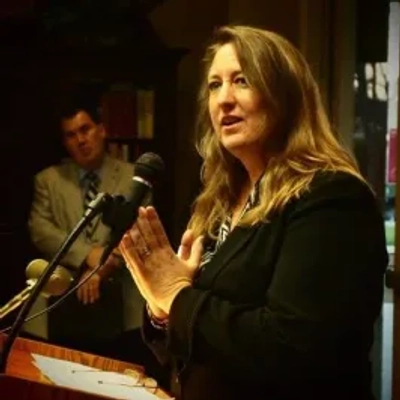8 Rewarding Experiences With Geriatric Patients
This practical guide explores rewarding experiences healthcare professionals encounter when working with geriatric patients. Featuring insights from specialists in senior care, the article highlights how addressing hypertension, providing appropriate mobility aids, and supporting housing needs can transform elderly patients' quality of life. These evidence-based approaches demonstrate how healthcare providers can help seniors reclaim their independence and thrive during their golden years.
Helping Seniors Thrive Beyond Basic Housing Needs
I've spent three decades in affordable housing services, and one moment stands out from our seniors aging in place program. We had an 84-year-old woman at one of our 36,000+ properties who'd been isolated for months after her daughter moved out of state--she was days away from giving up her apartment because she couldn't manage basic tasks anymore.
Our team connected her with grocery delivery, set up telehealth for her diabetes management, and most importantly, paired her with a neighbor who checked in daily. Within six weeks, she was attending our community activities again and actually started co-leading a knitting circle that now has 12 regulars.
What made it meaningful wasn't solving one problem--it was watching her shift from survival mode to thriving. She told me "I forgot I could still be useful to people," which absolutely gutted me in the best way. That's why our housing retention rate hit 98.3% in 2020--keeping seniors housed isn't just about rent assistance, it's about giving them reasons to stay.
The lesson I've learned: older adults don't need us to rescue them. They need infrastructure that lets them rescue themselves, then watches them absolutely flourish.

Restoring Independence Through Structured Hypertension Care
One of the most rewarding experiences involved helping an 82-year-old patient regain independence after years of unmanaged hypertension had limited her daily activity. She joined RGV Direct Care seeking clarity and consistency, not just more medications. We developed a simplified care plan that combined home blood pressure monitoring with biweekly telehealth check-ins, focusing on small, measurable goals like walking ten minutes daily and adjusting sodium intake.
What made the experience meaningful was witnessing how structure restored her confidence. Within six months, her blood pressure stabilized, and she no longer relied on family for routine errands. During her final visit of the year, she described feeling "in control again"—a phrase that captured the true purpose of direct care. The success was less about clinical metrics and more about dignity regained through accessible, personalized attention that met her at her pace.

Mobility Aids Restore Autonomy Beyond Physical Relief
One of the most rewarding experiences involved an elderly patient struggling with diabetic neuropathy who had nearly stopped walking due to chronic foot pain. We fitted her with custom orthotic inserts and a lightweight mobility aid designed to reduce pressure points and improve balance. Within weeks, she regained the confidence to move independently again—first across her living room, then to her garden, which she had not visited in months.
The most meaningful part was witnessing how restored mobility reshaped her outlook. The intervention went beyond physical relief; it returned a sense of autonomy that aging and chronic illness had quietly taken away. For our team, it reinforced that medical supplies are not simply products but pathways to dignity. Every adjustment, from selecting the right cushioning material to fine-tuning the fit, carried emotional weight because it allowed her to reclaim a piece of her daily life that pain had stolen.

Intergenerational Wisdom Enriches Healthcare Relationships
Knowledge exchange between generations represents one of the most enriching aspects of geriatric care. Healthcare providers gain valuable insights from elderly patients who share stories of historical events, cultural traditions, and life lessons accumulated over decades. These exchanges create meaningful connections that transcend typical medical relationships and enhance the care experience for both parties.
Many geriatric patients possess practical wisdom about navigating life's challenges that cannot be found in textbooks or medical training programs. The opportunity to learn from those with such extensive life experience offers perspective that shapes how healthcare providers approach both their professional and personal lives. Seek out opportunities to listen deeply to the wisdom your elderly patients offer beyond their medical concerns.
Personalized Care Plans Maximize Geriatric Independence
Healthcare providers can restore independence in geriatric patients by creating personalized care plans that focus on their specific needs and abilities. These tailored approaches often include adaptive equipment, modified living spaces, and customized therapy regimens that enable seniors to perform daily tasks without assistance. The feeling of accomplishment when an elderly patient regains the ability to dress themselves or prepare a simple meal is tremendously rewarding for all involved in their care.
This restoration of independence not only improves physical health but also significantly enhances mental wellbeing and quality of life for older adults. Medical professionals should always seek ways to maximize independence rather than defaulting to doing tasks for patients. Consider how you might adapt your care strategies to empower seniors to help themselves whenever possible.
Elderly Patients Teach Powerful Lessons in Determination
The resilience demonstrated by geriatric patients facing multiple health challenges offers profound inspiration to healthcare professionals. Many elderly individuals navigate complex medical conditions, chronic pain, and difficult treatments while maintaining positive attitudes and determination. Their ability to adapt to changing circumstances and find joy despite limitations serves as a powerful reminder of human strength.
Healthcare providers often describe the privilege of witnessing seniors overcome setbacks through sheer willpower and determination to maintain independence. The lessons in perseverance taught by these patients extend far beyond medical settings into how we might all approach life's difficulties. Take time to acknowledge and learn from the remarkable resilience shown by older adults in healthcare settings.
Respect Maintains Dignity Despite Physical Limitations
Preserving dignity in geriatric care involves recognizing the whole person beyond their medical conditions or physical limitations. Healthcare workers find deep satisfaction in maintaining respectful communication, ensuring privacy during personal care, and involving elderly patients in decisions about their treatment plans. Even simple acts like addressing patients by their preferred names, knocking before entering rooms, or covering them properly during examinations show respect for their humanity.
The ability to maintain a person's sense of worth despite declining health creates meaningful connections between caregivers and patients. Everyone deserves to age with dignity regardless of their physical condition or cognitive status. Make a commitment to protect the dignity of every older adult in your care through thoughtful, respectful interactions.
Compassionate Moments Build Essential Patient Trust
Building trust through consistent compassionate care forms the foundation of effective geriatric medicine. Healthcare providers earn this trust by demonstrating reliability, honesty, and genuine concern during each interaction with elderly patients. This trust develops gradually through small moments of kindness, like remembering personal details, listening attentively to concerns, or providing comfort during difficult procedures.
Once established, this trusted relationship allows for more effective treatment as patients become more forthcoming about symptoms and more willing to follow medical advice. The bond created through compassionate presence often extends beyond the patient to include family members who rely on healthcare providers for guidance and support. Commit to being consistently compassionate in every interaction with older adults, recognizing that trust is built one caring moment at a time.

